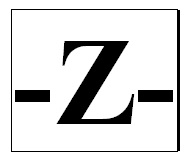This week I finished the “Spanish Phrases” (about 300 of them) section of my phrasebook, and got to the Verbs section. But instead of the verbs being presented as part of a phrase or sentence, as I’d expected, they’re simply listed in their various conjugations.
One of the good things about learning 10 phrases each day is that it makes the maths that much easier. 25 irregular verbs X 10 different cases, with at least 5 forms for each case = 1250 words to memorise, which will take me 125 days, or 4 months. And we haven’t even got to the regular verbs yet.
Now, as I will have plenty of time in the seventh circle of hell to conjugate Spanish verbs, I’d rather spend as little time as possible doing it here on Earth. One of the reasons I am memorising a phrasebook after all is that I only want to memorise stuff that I might actually use one day.
This is where Mr Collins comes in.
Mr Collins!
No, not Mr Collins from Pride and Prejudice. This Mr Collins.
This dictionary (Collins Easy Learning Spanish Dictionary, ISBN 9780007253500) is especially useful because it has lots of helpful phrases to illustrate how words are used in context. I will look up the verbs that my phrasebook contains in this dictionary, and then memorise the phrases in the dictionary. I will trust Mr Collins to show me which conjugations are more frequently used by the number of example phrases he has provided for me. I assume that the more frequently used conjugations will have more examples.
Speaking of Pride and Prejudice, one of the phrases that the dictionary contains is Me dio mucha alegría verla. Which means “I was very pleased to see her”. But I think the literal translation is something like “It gave me much happiness to see her.”
Which sounds exactly like something Elizabeth Bennet would say.
Progress Report
I successfully learned another 70 phrases this week, which brings my grand total to 350.
Today I will learn some conjugations of the verbs dar (to give) and decir (to say).



